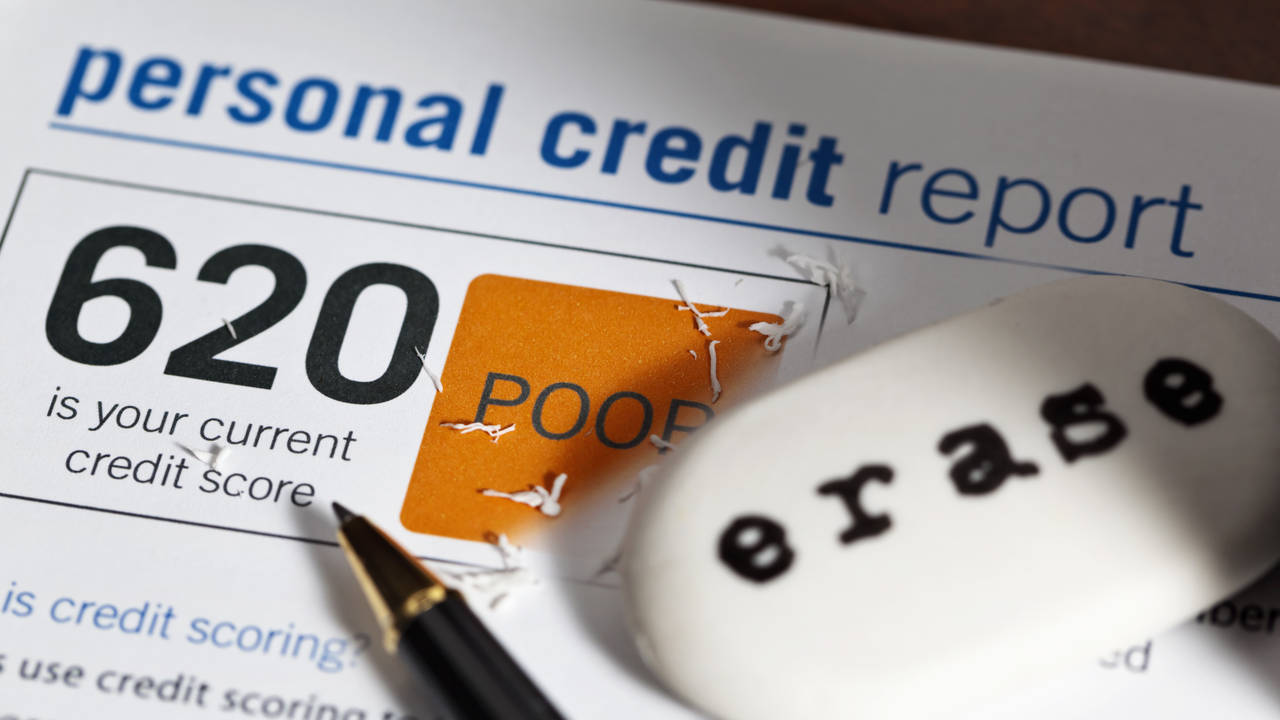Having bad credit makes obtaining a mortgage loan more difficult. Conventional mortgage terms are often out-of-reach for borrowers who lack sufficient credit history. In these cases, government-sponsored loans from the Federal Housing Administration (FHA) and Department of Veterans Affairs (VA) can help people with poor credit buy homes. In many cases, these programs also allow borrowers to make lower down payments on their homes.
Mortgage Applications With Bad Credit
Trying to buy a home with bad credit complicates a process that's already chock-full-of paperwork. Lenders view your credit score as a bellwether of your likelihood to default. The best mortgage programs for poor credit borrowers are designed to reduce risks borne by lenders, thus increasing your likelihood of approval. We've listed a few options for borrowers with poor credit below.
| Type | Description | Best for |
| FHA Loans | Backed by the FHA; features low down payments and low credit hurdles | Credit Scores of 500 and above |
| VA Loans | Backed by the VA; features no down payment option and reduced credit hurdles | Veterans and active-duty military |
| Cosigned Mortgages | Conventional mortgage with joint applicant or cosigner | Borrowers with insufficient credit history |
FHA Loans: If your credit score is low, your most obvious option is an FHA loan. FHA mortgages are offered by most banks and mortgage companies. All FHA loans are insured by the FHA, which transfers risk from the lender to the government if a borrower defaults on his mortgage. FHA loans come with the added benefit of low down-payment requirements; borrowers with credit scores of 580 or above can contribute as little as 3.5% of their total property value up-front, while borrwers with credit scores of 500 must put down at least 10%. However, one of the downsides of FHA loans is that they require PMI for the life of the mortgage, which cannot be removed until the loan is fully repaid.
VA Loans: VA mortgages are worth considering if you're a veteran or active servicemember with a poor credit history. There's technically no minimum credit score for a VA loan, but most VA lenders will look for scores of around 620 or better. Given that the average credit score in the United States is 695, this is still fairly lenient. Borrowers with credit scores under 620 may still find lenders willing to work with them if they're willing to modify loan terms in other ways. For example, larger down payments are a common ways for lenders to increase your likelihood of approval.
Cosigning on a Mortgage: First-time homebuyers often haven't built up sufficient credit history to qualify for a mortgage on their own. Putting a cosigner on your application can help boost your chances of approval. An acceptable cosigner can be a parent or relative, but include others in some instances. While similar to cosigning a lease, cosigning for a mortgage raises the stakes significantly due to the amount of money involved. Always consider whether your cosigner might be comfortable with taking over on your loan payments should you encounter financial difficulty.
Other Ways to Get a Mortgage With Bad Credit
Credit isn't the only variable that lenders consider during the underwriting process. For instance, lenders look at other measures of risk, including your ratio of debt-to-income (DTI) as well as the amout of funding you request. Paying off existing debt like credit cards and personal loans can help improve your DTI, which further improves your credit score. Increasing the size of your down payment can also reduce risk to your lender and improve your likelihood of approval.
Obtaining a mortgage is only half the journey. Many times, borrowers with poor credit will narrowly qualify for the most expensive terms, combining high interest with burdensome conditions. To ensure that you save the most money in the long run, a reliable strategy is to refinance your existing high-interest mortgage after you've had the chance to improve your credit score. This can also serve the added purpose of eliminating pesky private mortgage isurance (PMI) on FHA loans.
Borrowers who have already tied the knot may consider applying for mortgages under the name of whomever has the highest credit score. Lenders typically look at the lowest credit score on a joint application when setting an interest rate. Couples buying their first home may be able to obtain lower rates and fees through this method. However, be aware that this tactic is a double-edged sword; by excluding the other spouse, you may also limit the amount banks might be willing to lend. Lenders typically calculate max loan amounts based off the combined income of borrowers listed on the application. This is a tradeoff that should also be considered alongside the cost of the target property when applying for a mortgage.


Comments(1)